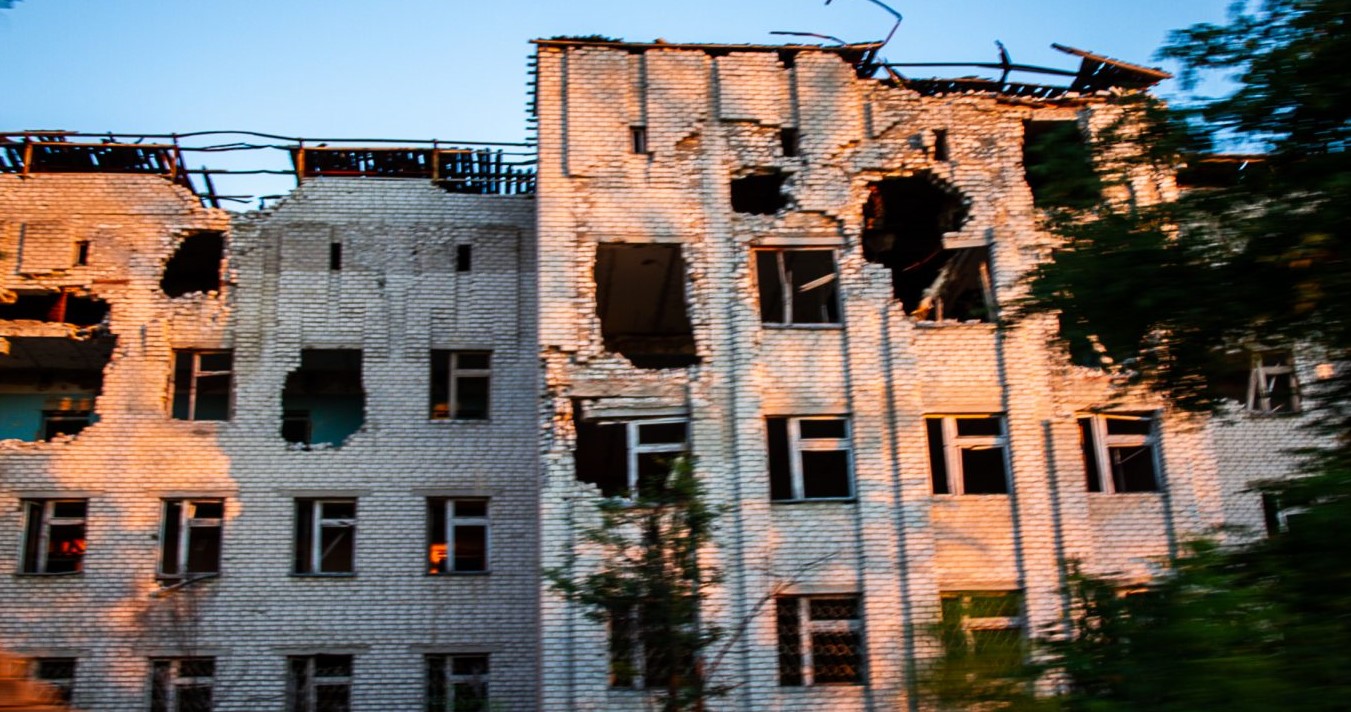
By Nino Sergi*
What is stopping the Presidents of the EU Council and Commission, together with the leaders of the three main Member States, from scheduling a meeting with Putin in Moscow and with Zelensky in Kyiv in order to obtain a generalised ceasefire to allow humanitarian corridors for the thousands of people who are dying in the combat zones? What is stopping them from adopting ways that are in keeping with the extraordinary nature and urgency of such an initiative?
In recent weeks the war now seems to be focused on the Donbas provinces and the coastal strip leading to the Crimea. It will be violent, with new destruction, deaths and brutal massacres of civilians, since its outcome will condition the negotiations for the subsequent ceasefire. One of the central points of the negotiations will be this eastern and southern area of Ukraine: why then wait for further massacres, destruction and crimes, given that Zelensky has confirmed his willingness to negotiate with Putin?
Negotiations between Russia and Ukraine are for now at the deepening of reciprocal demands, while the war continues with no certainty about its duration. If it continued until 9 May, as hypothesised, we would be faced with a doubling, aggravated, of what has already happened and suffered, because it would be decisive weeks from a military point of view. If it were to be prolonged further, the risks of some direct external involvement would increase.
International norms and international humanitarian law have been violated and overturned, destroying decades of in-depth negotiations to safeguard human beings and their dignity, even during the war. A ceasefire is needed to allow both the safe evacuation of people in dire need and the supply of food, medicine and basic necessities to those who remain. The responsibility to protect remains a fundamental principle enshrined by the UN, which should bind everyone. As suggested by Pope Francis, it could be implemented between Catholic Easter and Orthodox Easter, 17-24 April, the most important feast of Christianity, felt in both Russia and Ukraine. To state that “the conditions are not there”, without implementing all possible political initiatives to create them, remains a sign of Europe’s political weakness.
The truce can only be achieved through negotiation. The EU, while condemning the aggressor Putin and supporting aggrieved Ukraine, seems paralysed in taking political initiative, even with extraordinary interventions. Delegating to third parties is useful but it is not enough: the active political subjectivity of the Union is also needed. Of course, there is the risk of a refusal on the part of Putin, who is seeking advantageous conditions in order to grant the truce, but for the EU it would remain a gesture of high political value that could in any case represent the opening of a line of direct dialogue with Russia that is no longer limited to the contacts of individual leaders, given the contiguity, the political and economic implications, and the primary interest for its own future and that of the Member States.
The start of the EU-Russia dialogue for the humanitarian truce could also support the ongoing negotiations between the parties and Turkish mediation to reach a compromise solution. And it could also lay the foundations for a wide-ranging dialogue between Europe and Russia that would pave the way for a conference renewing the 1975 Helsinki agreements and for the difficult but now indispensable global negotiations that will have to redefine a world order that meets today’s needs by moving away from the ‘balances’ of 77 years ago.
The unimaginable Russian aggression against Ukraine and the brutality of the war on our borders have stimulated a period of reflection on the future of Europe, on the recovery of the values that have made our democracies and freedoms possible, albeit imperfectly, and on openness to welcoming people with solidarity. The first quarter of 2022 marks the definitive end of the 20th century and the beginning of the 21st, which will have to re-establish new balances and new world relations: in the political dimension and in the economic, social, fundamental rights and peaceful coexistence dimensions.
A despot and a senseless and criminal war on our borders recalled the thirty years of uncertain world order after the implosion of the USSR and all that came with it: the illusion of the definitive supremacy of the West, during which the divergence of visions between powers with global ambitions, but also the contradictions and vulnerability of our West and Europe, did nothing but grow. It took thousands of deaths, atrocities on unarmed civilians, destruction of homes, schools, hospitals, two million children who fled abroad and many more displaced within Ukraine with as many women and mothers, cities besieged, bombed and exhausted by hunger and cold in the impotence of the international community.
Europe appears to be an impotent player in the international geopolitical context: on Ukraine, it is risking the international role that it would have a duty to exercise with all its political weight, given its territorial jurisdiction and the seriousness of the aggression – a seriousness that could even spread if not stopped once and for all with precise transnational agreements. If it is important to provide for common security and defence, it is even more important to have a common vision of the world and of the role of the EU in international relations, to be developed with a clear foreign policy and a unity that are still lacking.
Politics also require high-value gestures that are out of the ordinary and timely. And the future and the role of the EU depend on far-sighted political acts. Attempting to re-establish a dialogue with Putin now, at the highest level of the European institutions and states, with the clarity of the position taken, would certainly be a far-sighted political act of the highest value, as well as being inevitable.
*Nino Sergi is the founder and former president of humanitarian NGO INTERSOS;



